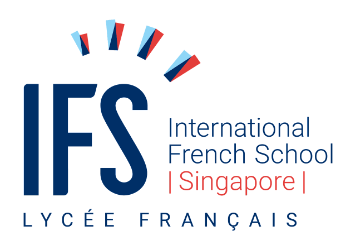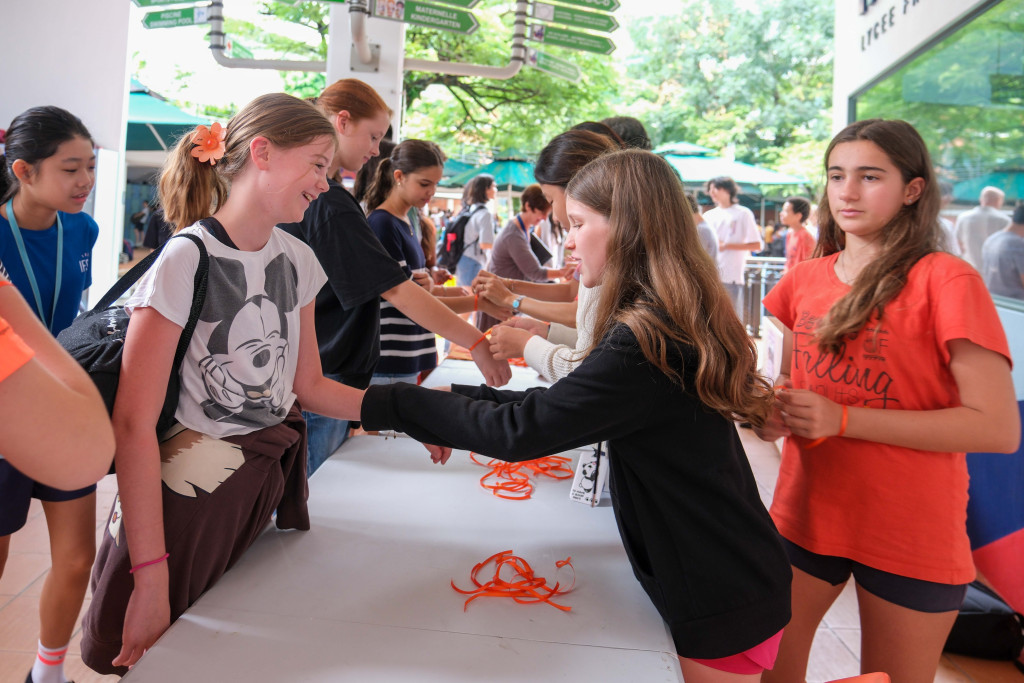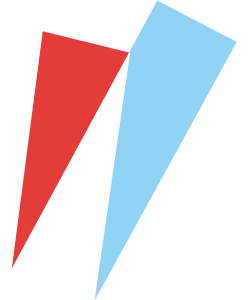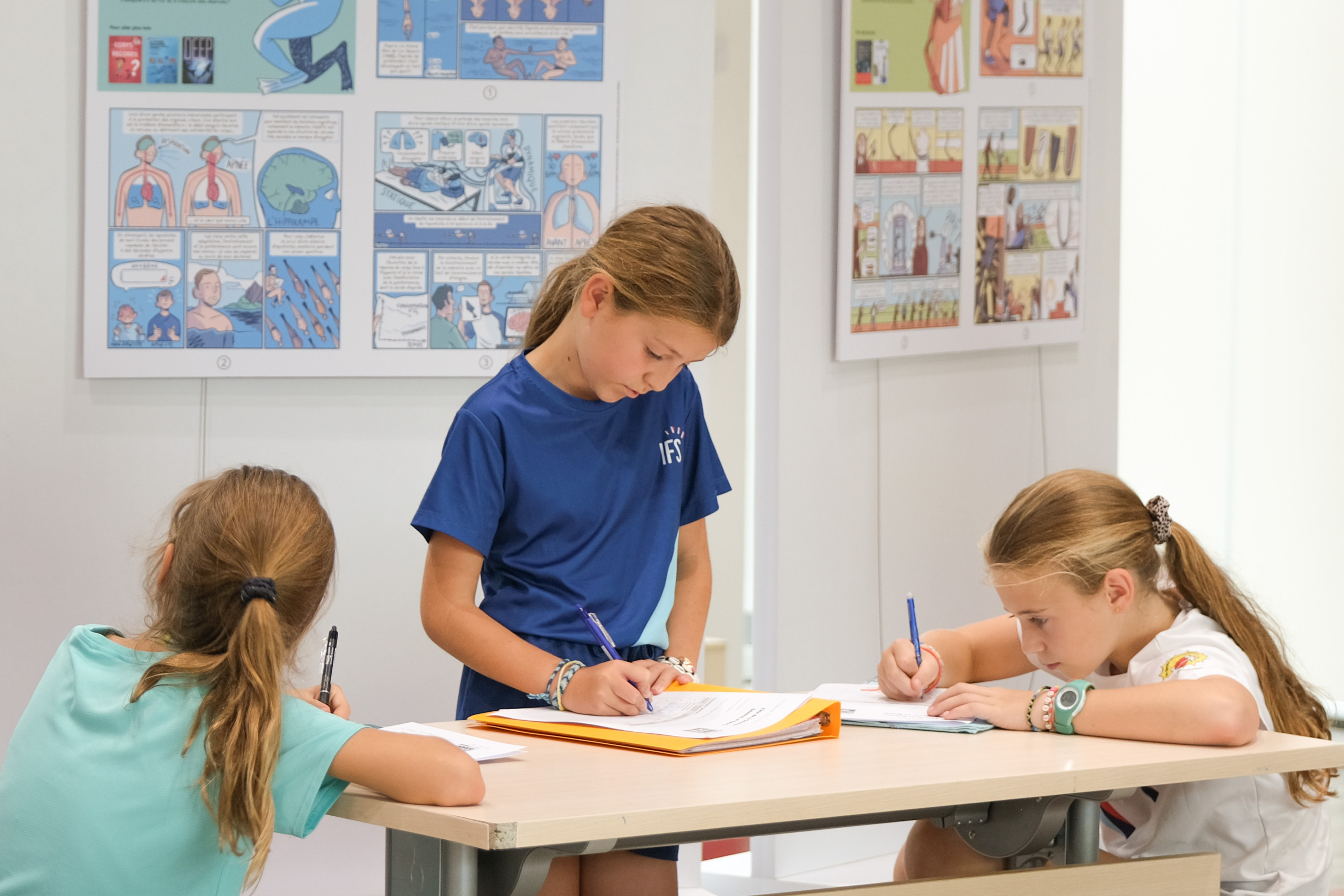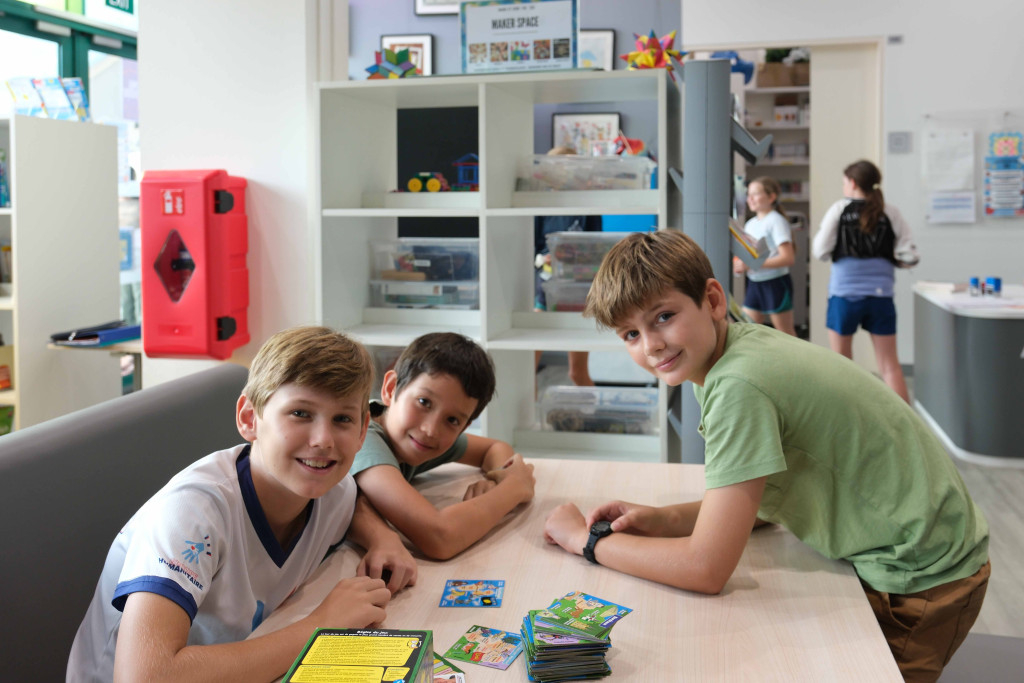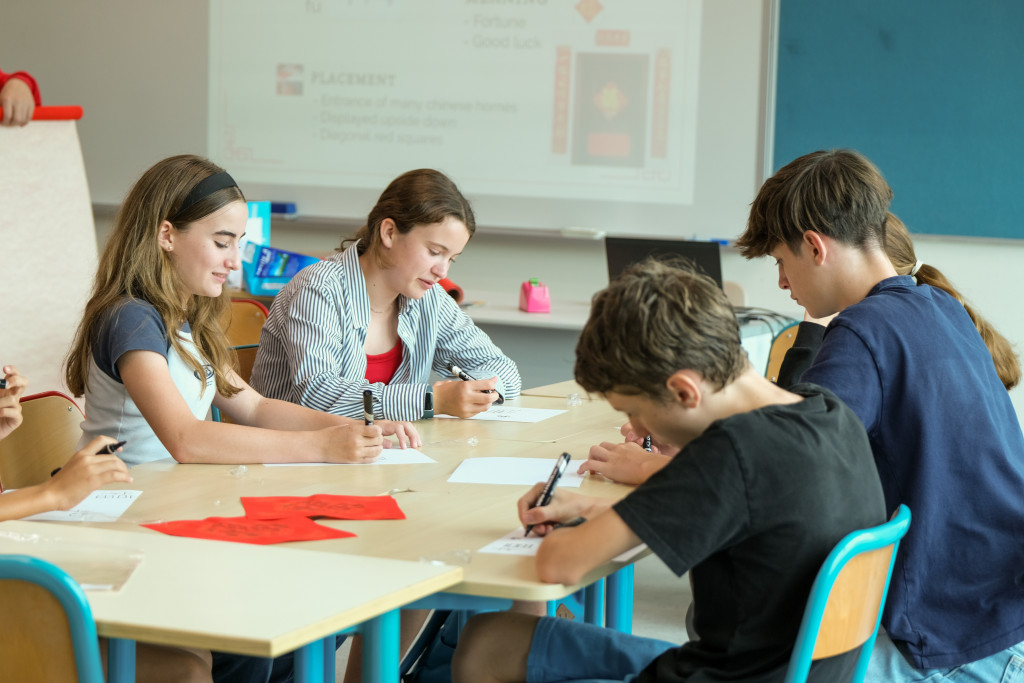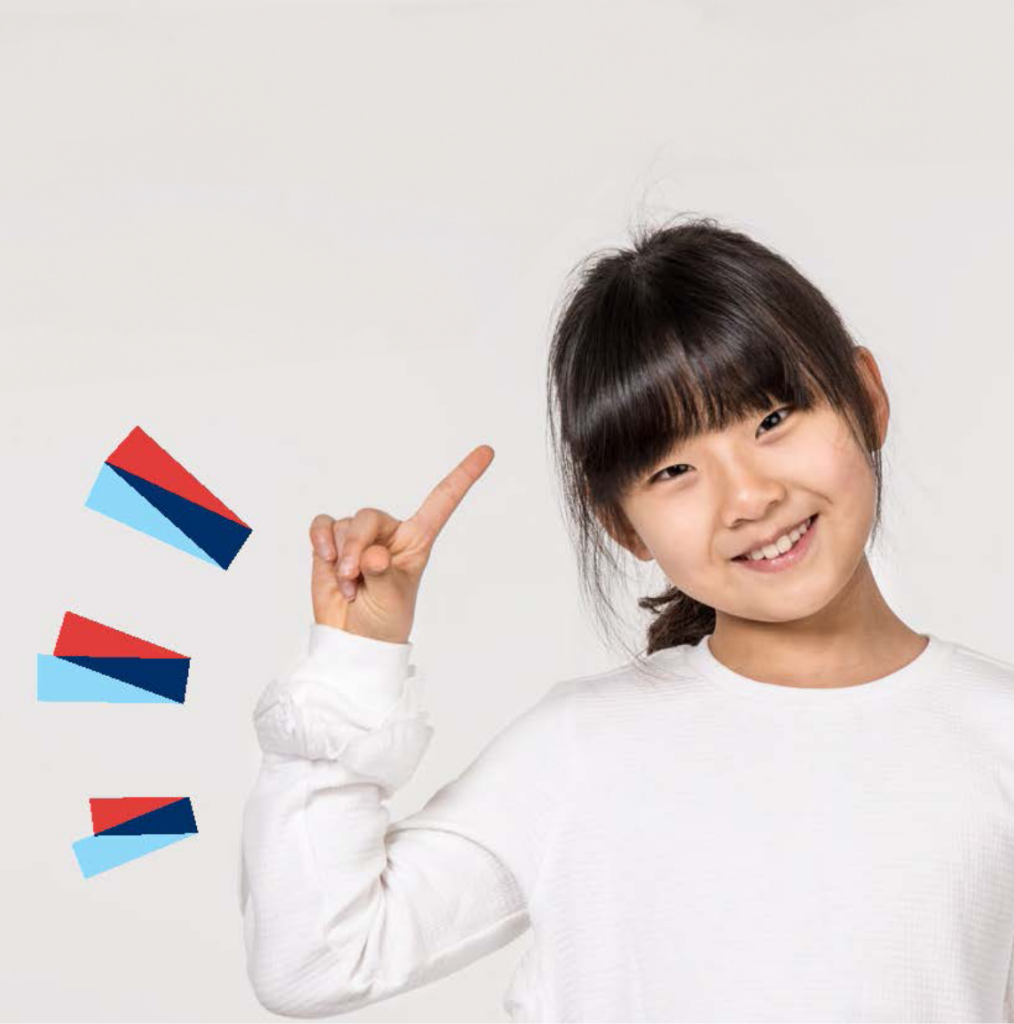Collège at IFS concludes with the French national brevet diploma (DNB) in Grade 9, assessing knowledge and skills acquired.
The DNB includes continuous assessment, four written exams (French, math, history-geography, sciences), and one oral exam on interdisciplinary projects, preparing students for Lycée and university.
International Section students can opt for the DNBI, adding oral exams in literature and history-geography.
A minimum average of 10/20 is required to pass, with distinctions awarded for high scores (Assez Bien, Bien, Très Bien).
